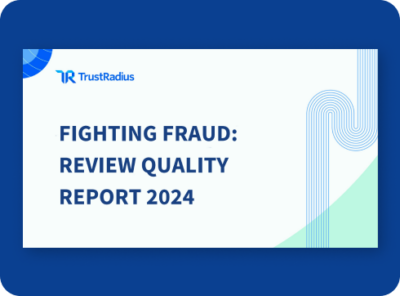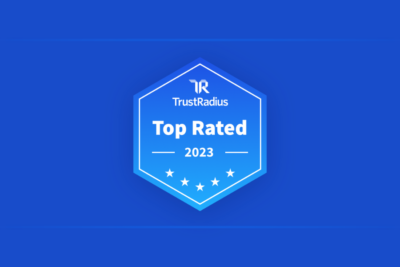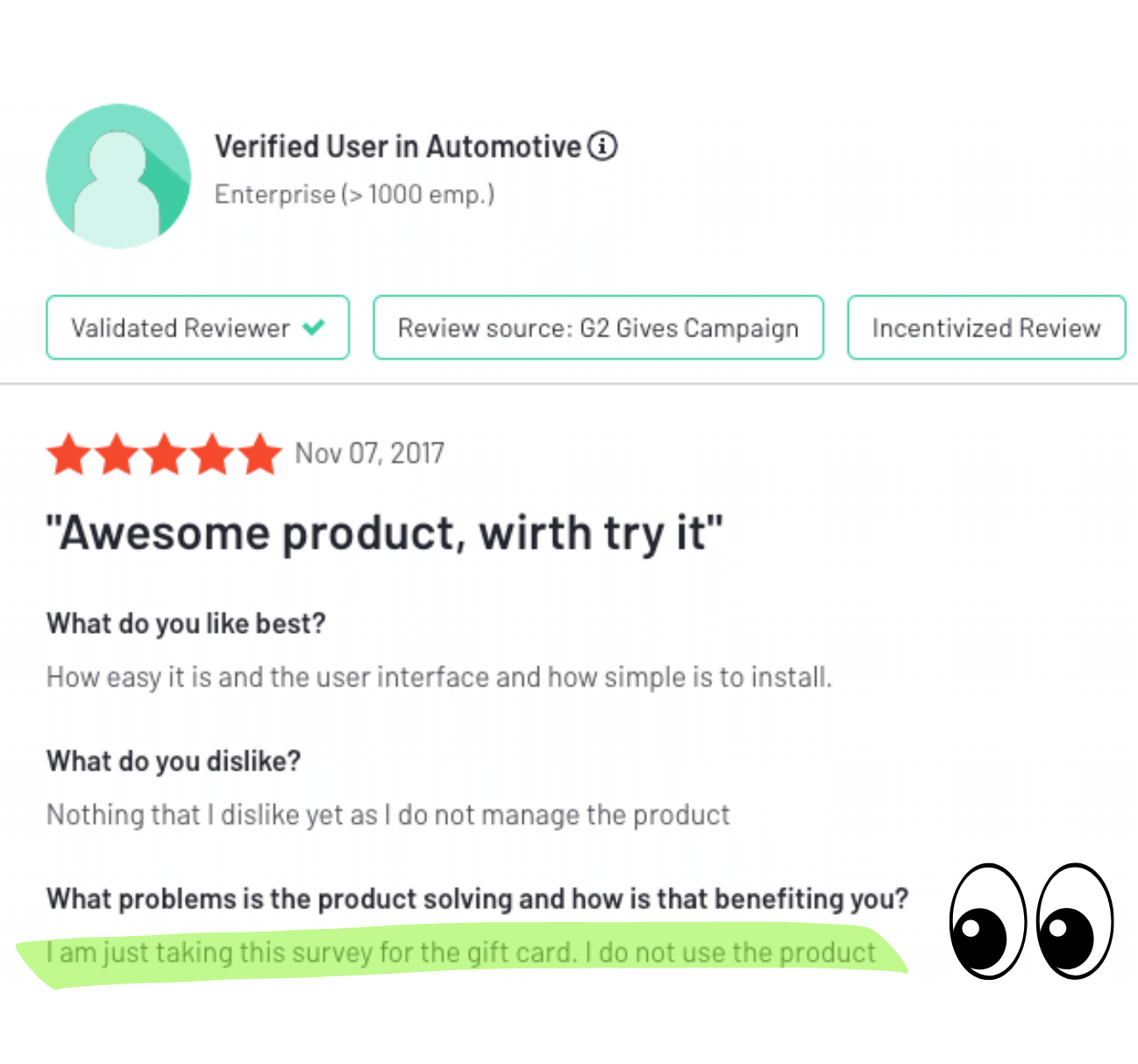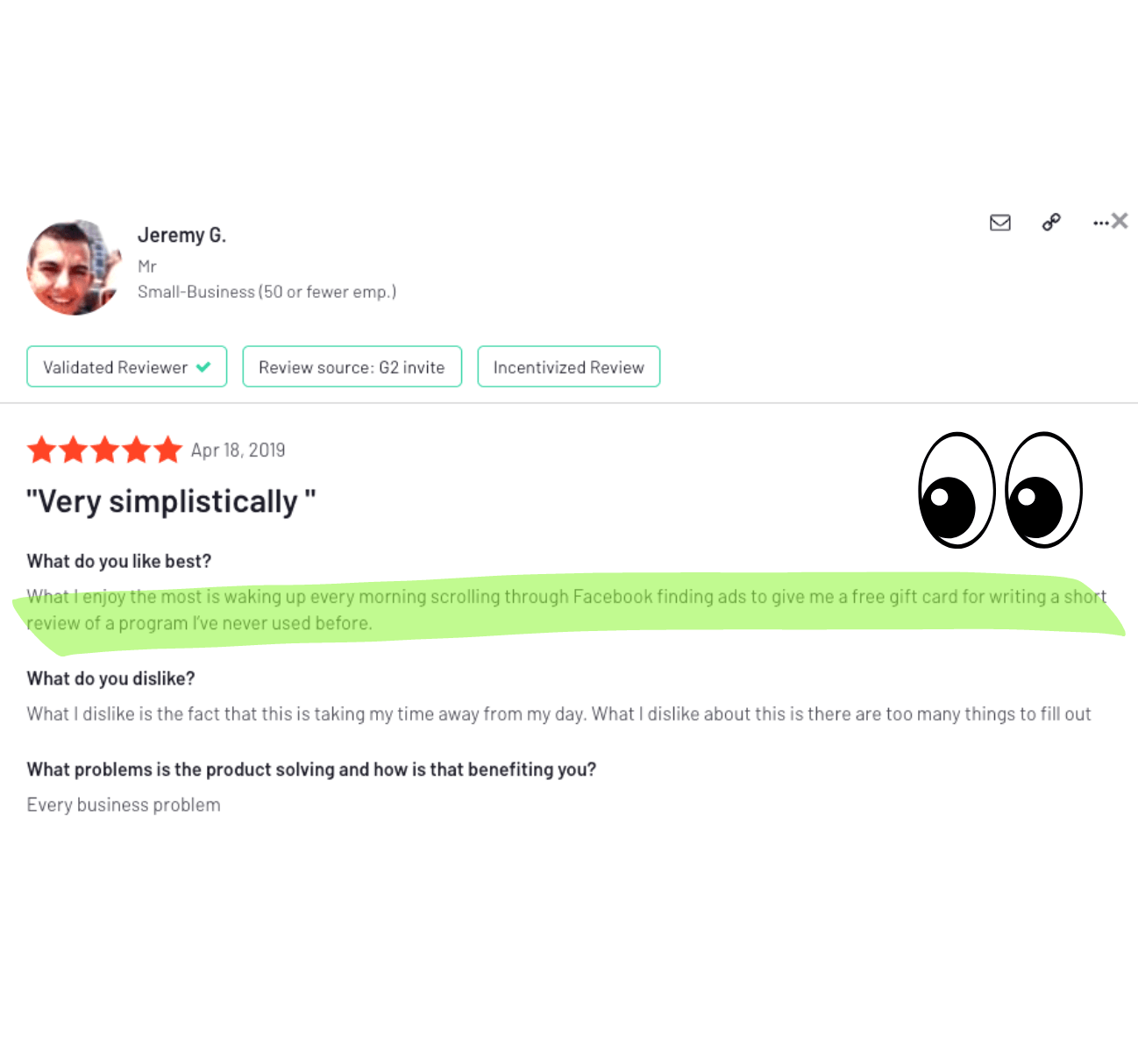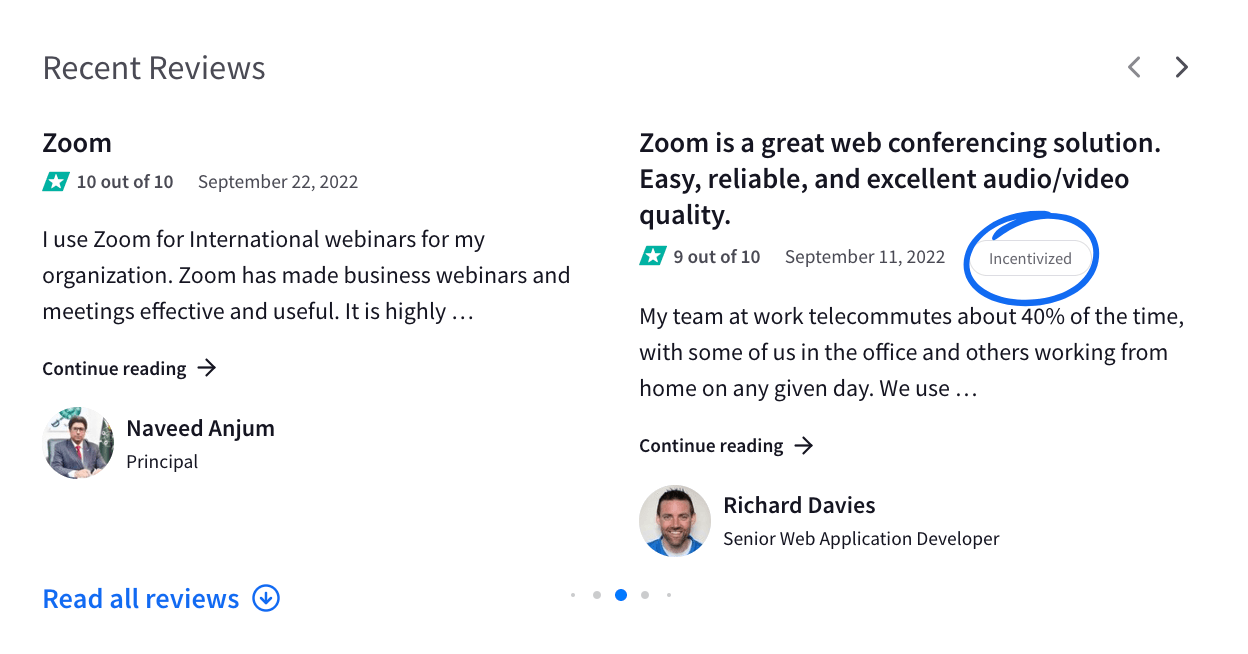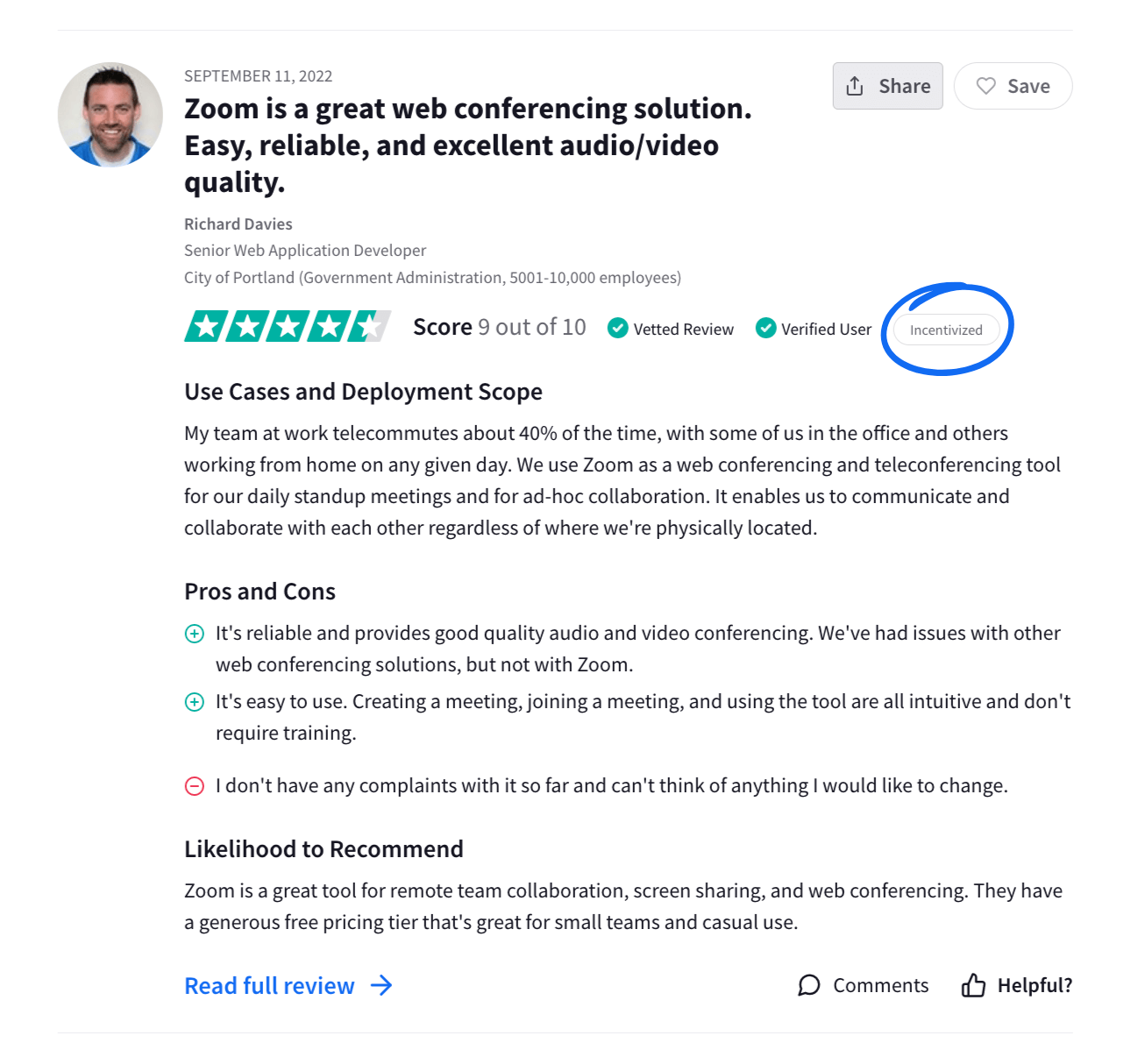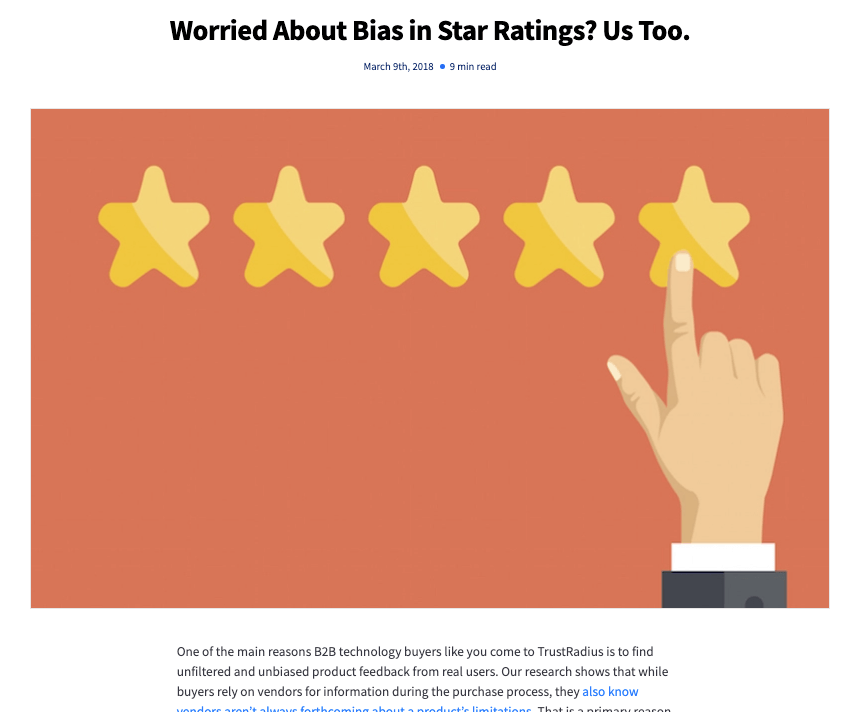FTC Incentivized Review Guidelines: Welcome to the Party!
The Federal Trade Commission (FTC) has protected consumers from deceptive or unfair business practices that include things like fraud, scams, false advertising, identity theft, pyramid schemes, medical quackery, and bogus investments, to name a few, for more than a century.
A more recent regulation from the FTC that made waves with millennials and Gen Zs came on the heels of the social media influencing trend. On November 5, 2019, the FTC issued a guide titled “Disclosures 101 for Social Media Influencers” to alert influencers of the laws governing endorsements or recommendations of products and services.
Letters were even mailed to social media photogs reinforcing Section 5 of the Federal Trade Commision Act, which prohibits “unfair or deceptive acts or practices in or affecting commerce.” Influencers were given clear instructions on how to provide full and sufficient disclosure, and words like “partnership,” “collaboration,” and “brand ambassador,” were deemed not appropriate.
Things like “#ad” and “sponsored content” were swiftly placed into the APIs of social media channels and influencers were required to disclose affiliation or paid endorsement at the top of their posts and within, and use the full name of the brand.
What does this have to do with incentivized reviews?
Well, a few things happened this past year.
On January 25, 2022, the FTC issued reinforced guidance, which “gives key principles for collecting, moderating, and publishing reviews in ways that don’t mislead consumers.”
“People should be able to trust that reviews reflect the honest opinions of customers or experts who actually used a product or service. Some businesses abuse that trust by writing or procuring fake reviews or by paying (supposedly) independent websites for good rankings. This kind of deception and manipulation harms both consumers and honest companies.”
In a nutshell, the FTC aims to discourage reviews that are:
- Segmented and submitted through a practice that solicits exclusively from high NPS raters or those who are expected to only leave positive reviews
- Awarded an incentive with the condition that the review is positive
- Overtly tagged with an incentivized review mark when solicited as such
- Fake or suspicious or from a non-user or non-customer of the product
In a press release published October 20, 2022, by the FTC, Samuel Levine, Director of the FTC Bureau of Consumer Protection, said “Companies should know by now that fake reviews are illegal, but this scourge persists.”
“We’re exploring whether a rule that would trigger stiff civil penalties for violators would make the market fairer for consumers and honest for businesses.”
—Samuel Levine, Director, FTC Bureau of Consumer Protection
G2 makes a timely announcement
On October 19, 2022, G2’s chief product officer published an article about these new guidelines and their hot take on “improving trust and transparency,” which was coincidentally published one day prior to the FTC press release announcement cracking down on violators. They also stated that moderation enhancements to their reviews weren’t “just to avoid a lawsuit, but to remain committed to improving the reviews space overall.” Interesting.
While we applaud G2’s efforts to position its societal leadership, the truth is, you shouldn’t need regulations or laws to do what’s best for your buyers.
Incentivized vs. fake vs. biased reviews
Incentivized reviews
In reality, TrustRadius and G2 have both been clearly labeling incentivized reviews for years.
In B2B, generating reviews without an incentive causes participation bias. Meaning, relying on self-motivation results in a lack of diverse reviews and the overrepresentation of the most extreme viewpoints. Invitations with a small incentive are a great way to get a larger representation sample (not just promoters and detractors) and an even distribution of ratings. These reviews are often more detailed, which is highly coveted by buyers when evaluating technology.
However, the practice of incentivizing reviewers also invited many bad actors to write fake reviews to cash in on those incentives.
G2’s “incentivized reviews”
Fraudulent, aka “fake,” reviews
The proliferation of fake reviews is a significant issue in the B2C world. To ensure reviews are authentic and unbiased, many consumer sites have banned the use of incentives. These moves were driven by research that showed that offering rewards or free products in exchange for reviews resulted in higher ratings. It was later discovered that these limitations backfired as incentivized reviews were paid for “underground,” making it even harder for users to detect fake reviews.
In the B2B world, fake reviews are a significant problem as well. Unlike in the consumer world, it’s not sellers purchasing fake reviews of their own products. Rather, it’s individuals seeking an easy buck. In order to protect the buyer from false information, user reviews must be vetted thoroughly. When review platforms don’t regulate fraudulent reviews they continue to perpetuate the lack of trust between buyers and technology sellers.
Biased reviews
Another common, less-talked-about issue is when vendors cherry-pick only their happy customers to write reviews. They do this by soliciting reviews only from net promoter score (NPS) promoters. The strategy: if you invite only your “9” and “10” customers to contribute reviews, your product will earn a very high star rating and placement on a grid.
These reviews aren’t fake—but buyers are missing the full picture if they don’t hear from customers across the spectrum of sentiment. These scores are meant to help buyers who want to get a quick pulse on user sentiment before digging in to reviews themselves. While many buyers see a high representation of positive reviews as suspect, these inflated scores can still mislead consumers in the context of grids and rankings.
Additionally, the same review sites that claim to remove all cherry-picked reviews are also seemingly labeling cherry-picked reviews as “organic.” According to a large sample dataset of G2 reviews, 60% of their “organic” reviews are five stars. Wow!
Interestingly, when G2 sources reviews independently of the seller (i.e., there’s no way to cherry-pick), only 33% of the reviews are five stars. This is similar to TrustRadius’ own review sourcing strategy: when we source reviews independently, 30% rate the product 10 out of 10. However, truly organic, non-incentivized reviews on TrustRadius get an average rating of 7.85 out of 10—compared to G2’s “organic” reviews which average 9.16 out of 10.
Review sites that allow the strategy of cherry-picking to achieve its intended outcome (inflated scores) are actually encouraging cherry-picking—shame, shame! It’s even more harmful when the review source is misrepresented to the buyer as organic rather than solicited by the seller.
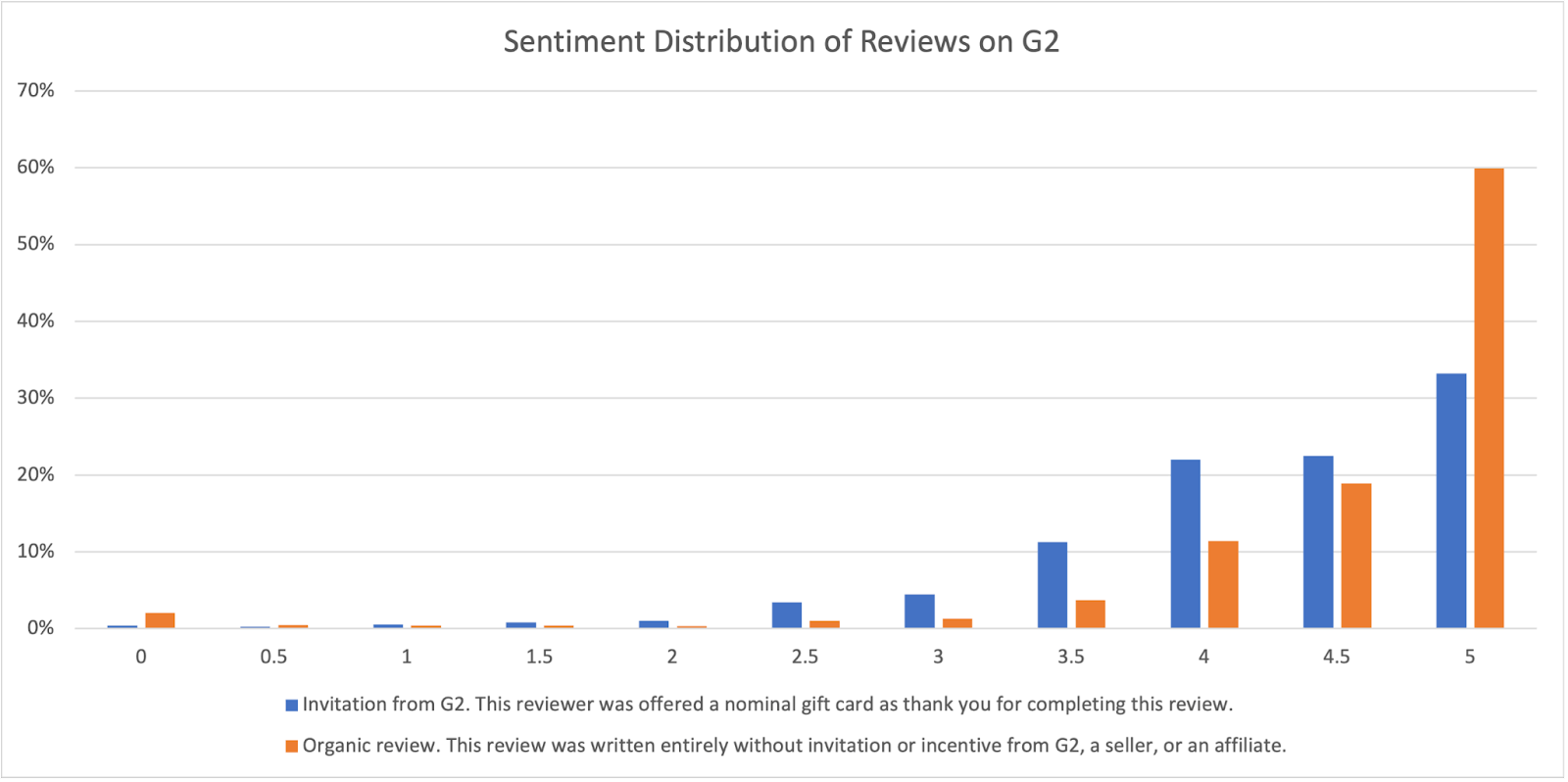
Furthermore, when a review site’s goal is to publish as many reviews as possible to rank highly in search engine result pages (SERPs), it’s difficult to take down large swathes of reviews that are likely cherry-picked. TrustRadius is not impervious to cherry-picking, we’ve just taken a strategic and deliberate approach to ensure it doesn’t work to achieve the intended outcome of driving up scores using our proprietary weighted-average algorithm called trScore™.
Our trScore™ algorithm removes selection bias from a product’s ratings in aggregate. Recent reviews, and ones that are sourced as part of a representative sample of users, are weighed much more heavily in our algorithm. This allows us to present the most accurate and objective picture of customer sentiment to buyers, as well as provide a level playing field for vendors. When reviews are sourced as part of a cherry-picked sample, our weighted-average algorithm detects and mitigates the influence on overall scores and rankings.
Buyers beware
Buyers have a lot to watch out for. In order to protect the buyer from false information, user reviews must be vetted thoroughly. When review platforms don’t regulate incentivized, fraudulent, or biased reviews they continue to perpetuate the lack of trust between buyers and technology vendors. That’s why it’s extremely important to use a trusted third-party source that actively combats fraudulent and biased reviews.
Check out our blog on how to spot a fake review.
Technology user reviews you can trust
Since TrustRadius’ inception 10 years ago, we’ve been dedicated to providing a trustworthy platform that empowers buyers to make confident technology decisions. TrustRadius is the most-trusted decisioning platform for buyers, and has taken extreme measures over the last decade to eliminate things like selection bias, cherry-picking, inflated vendor scores and rankings, misleading award programs, and fake reviews.
We’ve been on a mission to mend the trust gap between technology buyers and vendors. We’re one of the few review platforms where you don’t have to be a paying customer to build brand awareness and preference. You can claim your product profile, generate reviews, and win awards. Your customer sentiment does the speaking for you. No gimmicks, just important, trusted product information buyers want.
The good news, we already publish whether a review was incentivized or not and have been rigorously vetting all reviews for authenticity since our inception. In fact, on average, 30% of TrustRadius’ reviews are rejected for fraud. Vendors and buyers can feel secure that the only new changes we’ll make as a result of recent guidelines are enhancements for their protection so that reviews they promote outside of our site—using our API, widget, or Chrome extension—will carry the incentivized indicator all the way through to their own channels.
Read Our Promise to You
It’s TRUE
In 2021, we launched the TRUE program which highlights vendors who invite ALL of their customers to write reviews, rather than cherry-picking the happiest ones. This designation, which stands for Transparent, Responsive, Unbiased, and Ethical, is promoted proudly on product pages that emanate its values.
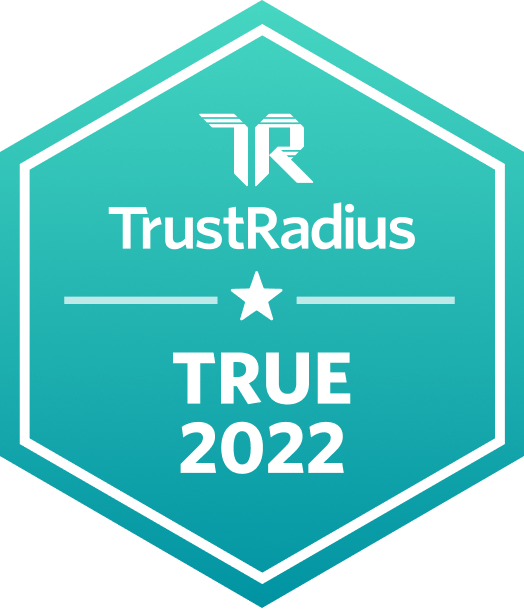
Trust has always been in our DNA
The long and short of it is—if you’re a customer of TrustRadius, you’re on the right side with the FTC.
We’ve been writing about preventing selection bias and cherry-picking for years.
In 2015, we changed our trScore™ algorithm to make sure rankings weren’t inflated by selection bias. Before that, we used simple averages—an outdated tactic that is still used by other review sites today.
In 2018, we raised our sincere concern about selection bias happening on other review sites.
In 2019, we thought it was important to expose the real Gartner Peer Insights, who belatedly admitted that cherry-picked reviews were affecting the outcome of their Magic Quadrant. Buyers are smart and they can see through fraud and gamification to get on a grid.
All of this aside, the real goal is to build trust between buyers and vendors. That’s why we’re dedicated to doing more than just labeling incentivized reviews. We’re continually looking for ways to improve that will help buyers make the best technology decisions for their business goals.
Measuring Integrity
Learn how we source quality and verified customer feedback, battle fake and biased reviews, and continue to improve our B2B decisioning platform so technology buyers and vendors have a trusted place to go in our report: Measuring Integrity: Review Quality Report 2023.



